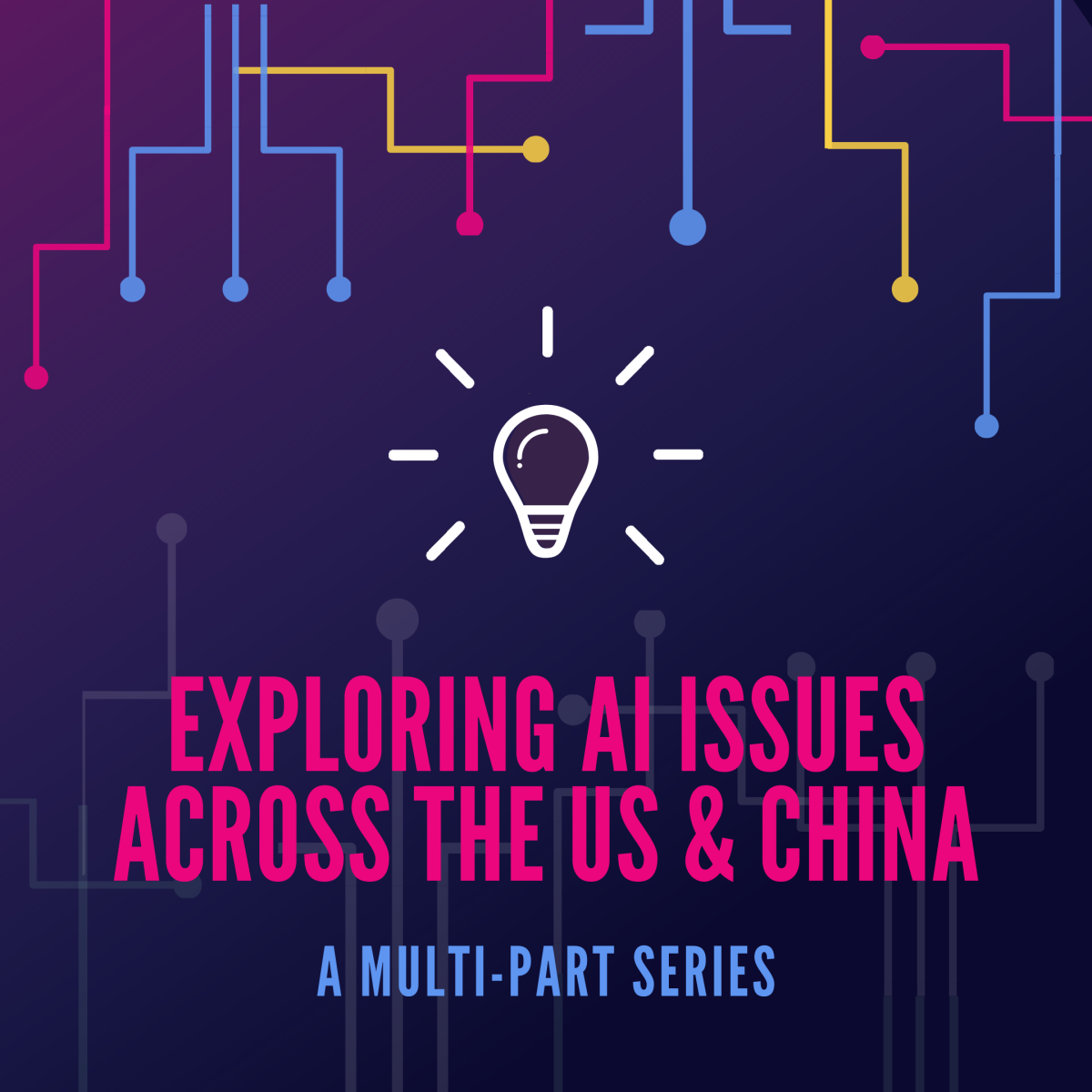Exploring AI Issues Across the United States and China
A Multi-Part Series

Exploring AI Issues Across the United States and China is a collection of case studies exploring AI issues across the U.S. and China, featuring perspectives from AI policy experts and researchers across North America, Asia, and Europe.
The series is a pilot effort to re-imagine pathways for global collaboration in the development, adoption and governance of AI technologies. AI is quickly being integrated into the fabric of daily life for people around the world through commercial and state use. Rapid advances in research and development position AI to have increasingly transformative impacts in the years to come, making it imperative that norms and best practices for the responsible development and use of AI technologies be fostered at the international level today.
What to Expect from This Series
Over the coming weeks, the series will explore contemporary issues in AI governance across areas such as: AI Principles, Open Source environments, AI Applications in Healthcare, Deepfakes, and Application of Facial Recognition Technologies.
In each case study, we have invited a contributing author to introduce an area of AI technology, provide global context on the issue, and profile responses to the issue in the United States and China. Each case includes an analysis that outlines similarities and differences in approaches to AI governance and provides perspective on present obstacles and suggestions for avenues of collaboration.
What to Take Away from This Series
Collaboration in technology policy presents many questions. In this series, each case study explores potential paths to collaboration – each of which may look very different from the others. We recognize that while we seek to answer important questions related to global technology governance, we also leave a number of questions unanswered. Each case and analysis are structured to represent the views of our invited experts, who are commenting on AI-related issues at a particular point in time. Issues in AI governance are dynamic, however, and bilateral relations between the United States and China are constantly evolving. This series explores the potential for collaboration in some areas of AI at a time when diplomatic relations between the United States and China have been deteriorating.
The selected case studies of the series represent only the tip of the iceberg – AI is a broad field – and a growing list of questions needs to be considered in the time to come. We hope that this series will contribute to building a shared understanding of the breadth of issues related to AI, as well as some of the possible pathways for collaboration between the United States and China in addressing these challenges. In doing so, we discuss some of the concerns that need to be mitigated at the international level to secure a new and interoperable way forward.
We are excited for you to join us in this inaugural multi-part series: Exploring AI Issues Across the United States and China.
SERIES RELEASES
New pieces in the series will be released regularly from August 5 to September 30, 2020. The links to read released pieces can be found below.
First piece: Introduction & Series Overview
Second piece: AI Principles in Context: Tensions and Opportunities for the United States and China by Jessica Cussins Newman
Third piece: Deepfakes by Julia Chen
Fourth piece: Facing Affect Recognition by Sébastien Krier
Fifth piece: Deep Learning in Drug Discovery by Marshall Peihang Li
Sixth piece: Facial Recognition Technology by Samuel Curtis
Final piece: Conclusion & Key Takeaways by Heather Evans and Benjamin Cedric Larsen
KEY PERSONNEL
Heather Evans is the Director of Frontier Technology Research at Asia Society Northern California. She studied as a Schwarzman Scholar at Tsinghua University in Beijing. Her master’s research at Tsinghua focused on evolving data governance policies. Heather has worked as an entrepreneur and civil servant. She served as the first Artificial Intelligence Senior Advisor to the Provincial Government of Ontario, helping to establish the Vector Institute of Deep Learning. She also started two businesses, in the spaces of Natural Language Processing and 3D Printing. Heather has collaborated with the National Academies of Science, the Royal Society and continues to mentor young entrepreneurs and policymakers.

Benjamin Cedric Larsen is the Series Editor and a Ph.D. Fellow at Copenhagen Business School (CBS) and Chinese Academy of Sciences (CAS), as well as a Visiting Researcher at Stanford’s Asia Pacific Research Center. Benjamin holds a dual master's degree in public management from CBS and CAS in Beijing. Prior to pursuing his doctoral degree, Benjamin worked professionally in China, holding positions across the Danish Foreign Ministry as well as China’s technology industry (NJU Electronics / JD AI). Benjamin’s research interests relate to the organization of AI innovation, with a particular focus on the dynamics playing out in China. His research looks at the organization of leading AI ecosystems while highlighting the role of the state in the governance of digital platforms that shape innovation in AI.
CONTRIBUTING AUTHORS

Jessica Cussins Newman is a Research Fellow at the UC Berkeley Center for Long-Term Cybersecurity, where she leads the AI Security Initiative. She is also an AI Policy Specialist with the Future of Life Institute and a Research Advisor with The Future Society. Jessica is a member of the OECD Network of Experts on AI (ONE AI), the CNAS AI Task Force, and the Partnership on AI Expert Group on Fair, Transparent, and Accountable AI.

Sébastien Krier joined the Office for Artificial Intelligence as a policy adviser in 2018, a government joint-unit responsible for designing and overseeing the implementation of the United Kingdom’s AI strategy. He is the Founder of Dataphysix Ltd in London and currently advises public and private organizations on policy, regulation, and strategies that maximize the benefits of AI, while minimizing potential risks. He is a Fellow at the Royal Society of Arts and sits on various technical and advisory boards.
Marshall Peihang Li studies Political Economy and Public Policy at the University of California, Berkeley. Raised in Beijing, China, Marshall now serves as a research assistant at Stanford University, investigating US-China relations and comparative politics in the context of higher education systems. He is the recipient of the Cal Alumni Leadership Scholarship, and the Chinese translator of "Davos 2020: Global Science Outlook Penal". Marshall also serves as the Vice President of California Lightweight Rowing team and is well known for his poetry and culinary skills.

Samuel Curtis is an AI Policy Researcher at The Future Society and a Project Manager for their new collaborative initiative, CAIAC (Collective and Augmented Intelligence Against COVID-19). He is a Schwarzman Scholar alumnus, and his Master's research on facial recognition technology in China was featured in a publication by the Beijing Academy of AI. He engages with the Montreal AI Ethics learning community and is a contributor to the China Tech Blog.
